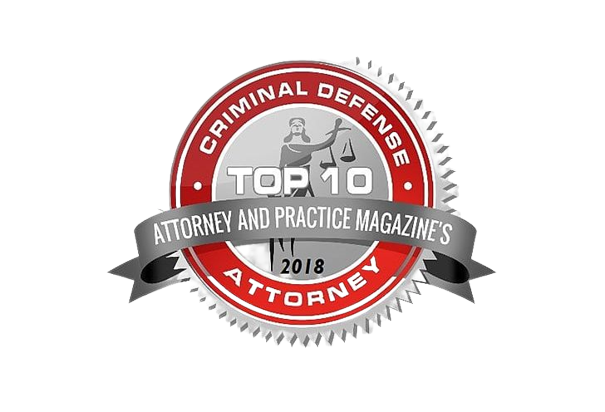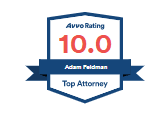Phoenix Weapons Lawyer
A Former Prosecutor on Your Side
Home > Weapons

2023 Super Lawyers

AV Preeminent Rated

Best Law Firm

A+ BBB Accredited
Charged with Illegal Weapon Possession?
Are you facing weapons charges in the greater Phoenix area? If so, you know that you are up against offenses that may have serious and long-lasting consequences. Some weapons crimes in Arizona may be misdemeanors, but most are felonies. In addition to possible jail or prison time, weapons violations may result in probation and fines, and could impact your ability to hold certain jobs as well as your ability to own a firearm. Various statutes in Arizona prohibit the sale, possession and use of “deadly weapons” and “prohibited weapons.” In order to understand those statutes, it is necessary to know how those terms are defined. The definitions are contained in A.R.S. 13-1301. Under that provision, “deadly weapon” is defined as anything that is designed for lethal use, including a firearm. “Prohibited weapons” include explosives; silencers; automatic firearms; rifles with barrels less than 16 inches; nunchaku and similar self-defense devices; exploding canisters; and chemicals which, either alone or in combination, may cause an explosion or mechanical failure.
There are a host of laws concerning misconduct involving weapons. Some relate to possession, sale and trafficking, and others involve the circumstances under which the weapon was used. Still others are based upon the status of the person possessing the weapon. Whatever the charge against you, an experienced weapons crimes attorney can help. At The Feldman Law Firm, we specialize in defending clients charged with crimes, including weapons offenses. Our experience in this area, combined with our dedication to our clients, is your assurance that you are receiving the best legal representation available.
Request Your Free Consultation
What are the Basic Weapons Offenses in Arizona?
The number of weapons offenses in Arizona is significant. The following are some of the more commonly charged weapons-related crimes:
Misconduct Involving Weapons. A.R.S. 13-3102A.
- Carrying a concealed deadly weapon (other than a pocket knife) on one’s person or within their immediate control (including carrying a weapon on a vehicle) in furtherance of a felony or any serious offense (A.R.S. 13-706) or violent crime (A.R.S. 13-901.03);
- Failure to accurately answer a question by a law enforcement officer as to whether the individual is in possession of a concealed weapon;
- Carrying of a concealed deadly weapon (other than a pocket knife) by anyone under the age of 21;
- The manufacture, sale, transportation or transfer of a prohibited weapon;
- Possession of a deadly weapon by a prohibited possessor. “Prohibited possessor” includes anyone who has been adjudicated by court order as a danger to himself or others; convicted felons; anyone serving a term in a correction or detention facility at the time of the possession; persons on probation for domestic violence or a felony offense, parole, community supervision, work furlough, house arrest; and undocumented and most nonimmigrant aliens.
- Transfer or sale of a deadly weapon to a prohibited possessor;
- Defacing, or knowingly possessing, a defaced deadly weapon. This means altering or removing the manufacturer’s serial number on the weapon;
- Use or possession of a deadly weapon during the commission of any drug felony or terrorism offense, or transferring a deadly weapon to anyone the transferor has reason to know will use the weapon in the commission of any felony;
- Discharging a firearm at an occupied structure in furtherance of street gang or racketeering activities;
- Carrying a deadly weapon (unless authorized by law) at an election polling place, or in a public establishment or at a public event after being requested to remove the weapon; and
- Possessing a deadly weapon on school grounds.
Award Winning Criminal Defense








Most of these offenses are classified as felonies.
Additional Offenses Involving Weapons
There are other crimes not listed under the weapons misconduct statute, but which nevertheless are treated more seriously, including increased penalties, when a deadly weapon or dangerous instrument is used. Here are a few examples:
- Aggravated assault – A.R.S. 13-1204. Assault is the intentional, knowing or reckless causing of a physical injury to another person, or intentionally placing a person in fear of imminent physical injury, or knowingly touching another person with intent to injure, insult or provoke that person. Without more, assault is a misdemeanor. When a deadly weapon or dangerous instrument (anything capable of causing death or serious physical injury) is used in connection with the assault, it becomes aggravated assault with a deadly weapon, which generally is a class 3 felony.
- Armed robbery – A.R.S. 13-1904. Robbery is the taking of property from another person through the use of threats or violence. It is a class 4 felony, and absent aggravating factors, is punishable by imprisonment up to three years. Armed robbery, that is, robbery while in possession of a deadly weapon or dangerous instrument, is a class 2 felony, punishable by up to ten years in prison.
- Burglary in the first degree – A.R.S. 13-1508. Burglary consists of entering a structure or yard with intent to commit theft or any felony. All burglary charges are felonies, depending in part upon whether the structure is non-residential (third degree burglary) or residential (second degree burglary). If the burglar is in possession of a deadly weapon, explosives or a dangerous instrument, the charge is first degree burglary, which raises the classification of the offense by one level, and could add years to the sentence in the event of a conviction.
Finally, a conviction for the illegal use of a deadly weapon or dangerous weapon may have additional consequences which extend beyond the weapons case itself. For example, such a conviction falls within the definition of violent crimes, which will make the defendant ineligible for probation in a case involving the personal possession and use of drugs.
How to Choose the Right Lawyer for Your Weapons Case
The weapons laws are complicated and a conviction, whether it is for misconduct involving weapons or another offense in which a weapon was involved, can result in years in prison. At The Feldman Law Firm, we are experienced weapons crimes attorneys. Adam Feldman, a criminal defense specialist and former prosecutor, has handled numerous cases involving weapons, including murder. His record of success in these cases is impressive, and he has obtained not guilty verdicts in homicide and aggravated assault cases.
If you have been charged with a weapons violation or any offense in which the crime directly or indirectly relates to a deadly weapon or dangerous instrument, you need an experienced and dedicated lawyer to guide you through the criminal justice process and provide you with the best defense available. Call The Feldman Law Firm today for a free consultation.
Criminal Law Firm Near You
Schedule a Consultation



